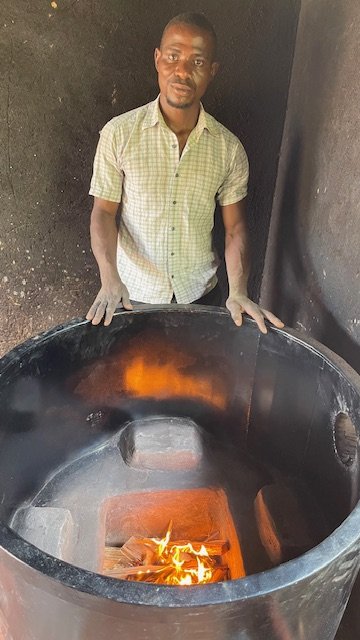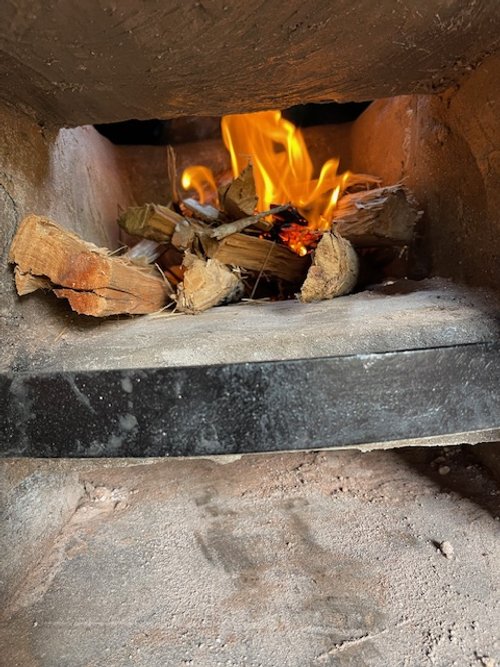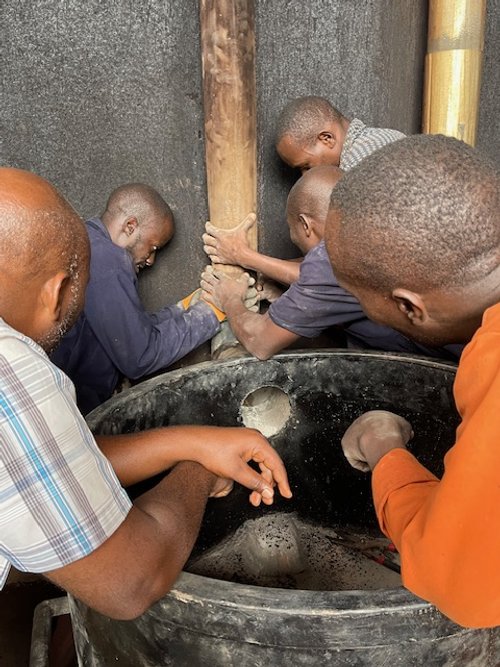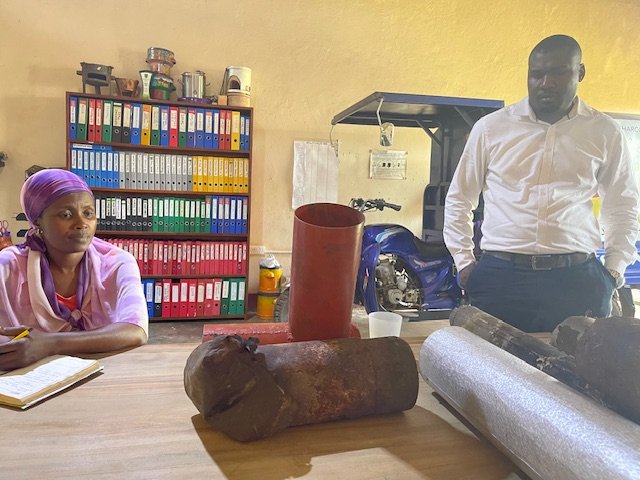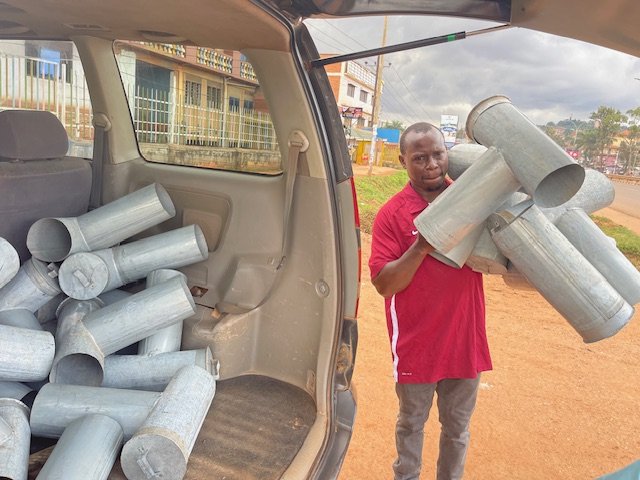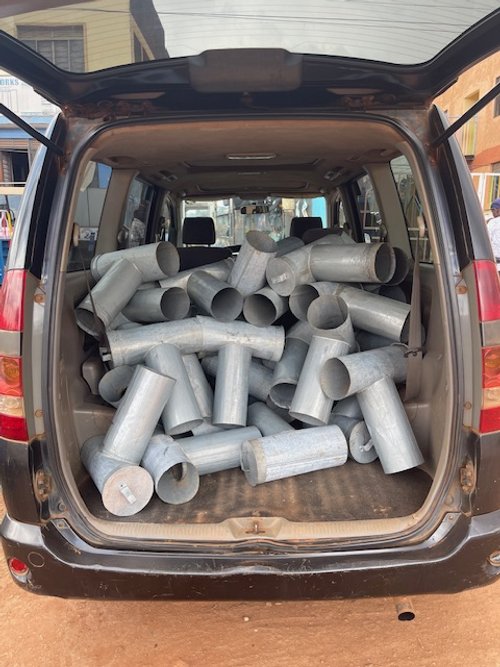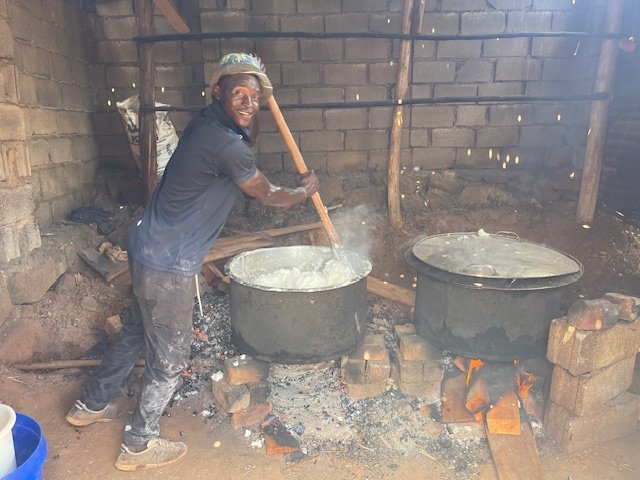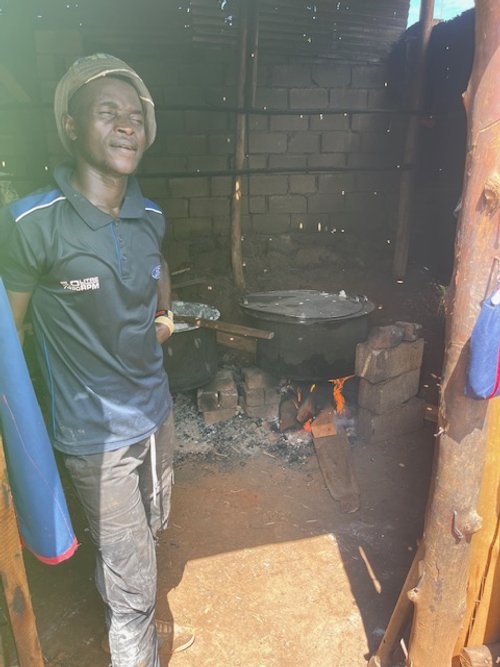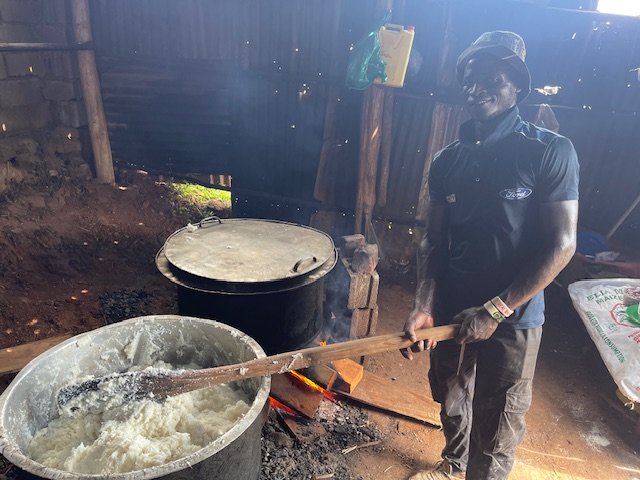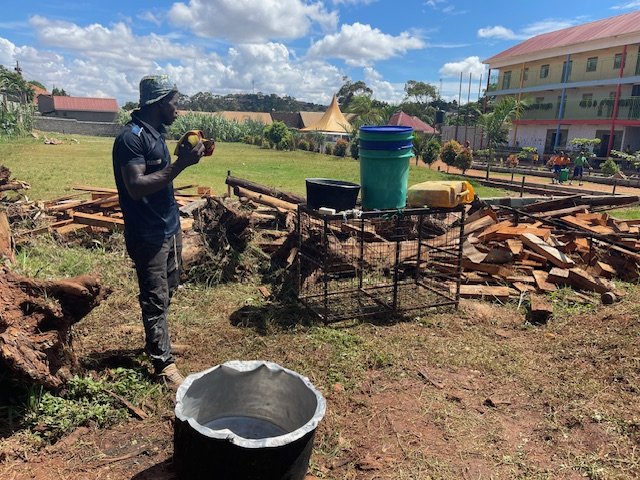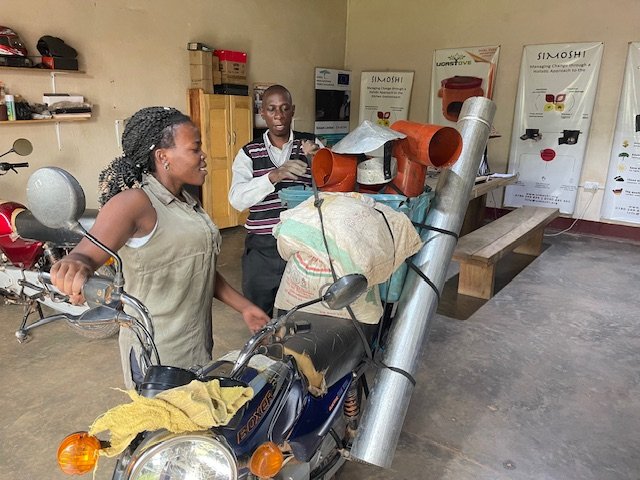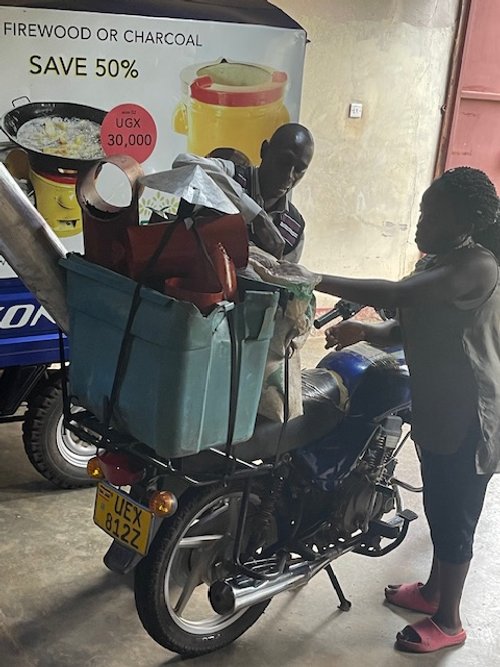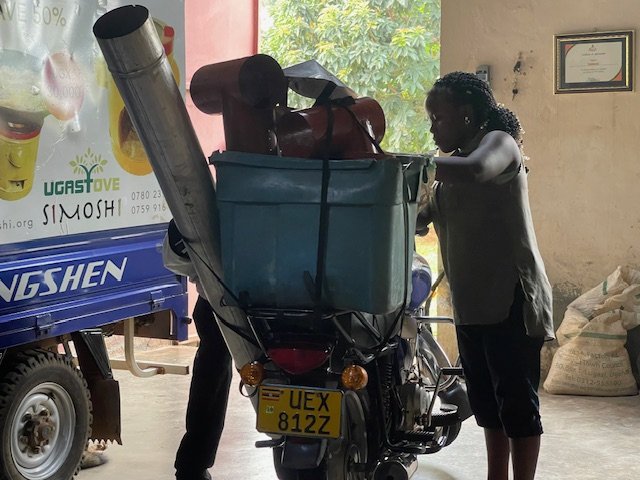Over the weekend we have installed 3 new institutional improved cook stoves (IICS) of different capacities at Namungoona Orthodox Primary School. This was possible thanks to the donation received from Herzlack, a vegan cosmetics manufacturing company based in Germany. For the past two years, they have been supporting Simoshi and government aided schools, to make sure these can move away from traditional cooking practices.
Namungoona Orthodox is a Kampala Capital City Authority aided school, with a population of 450 primary day scholars, and have spent 3 trucks of firewood during the last school term. With the new IICS installed, the school will be able to save over 500 USD of annual firewood purchases.


































